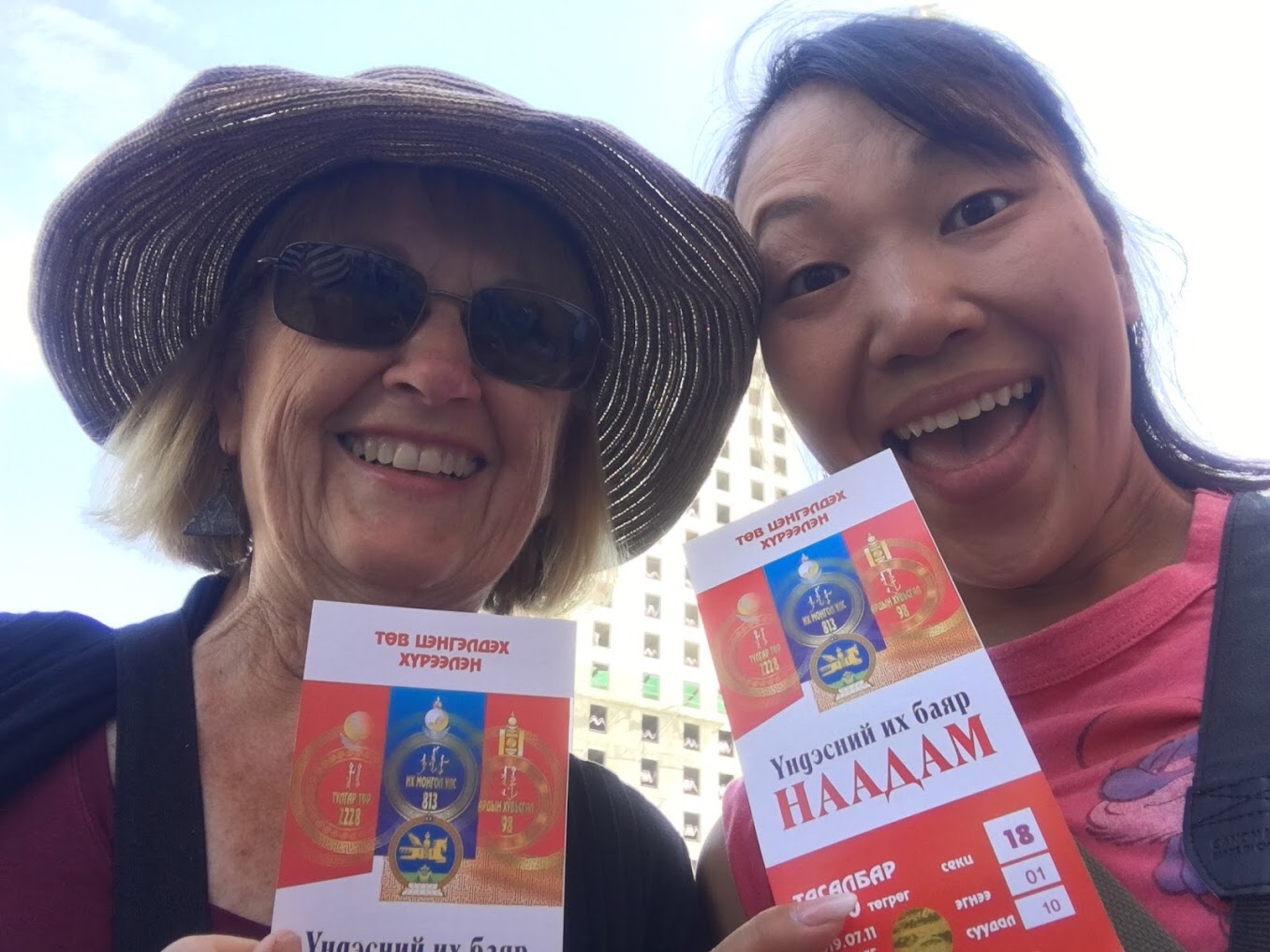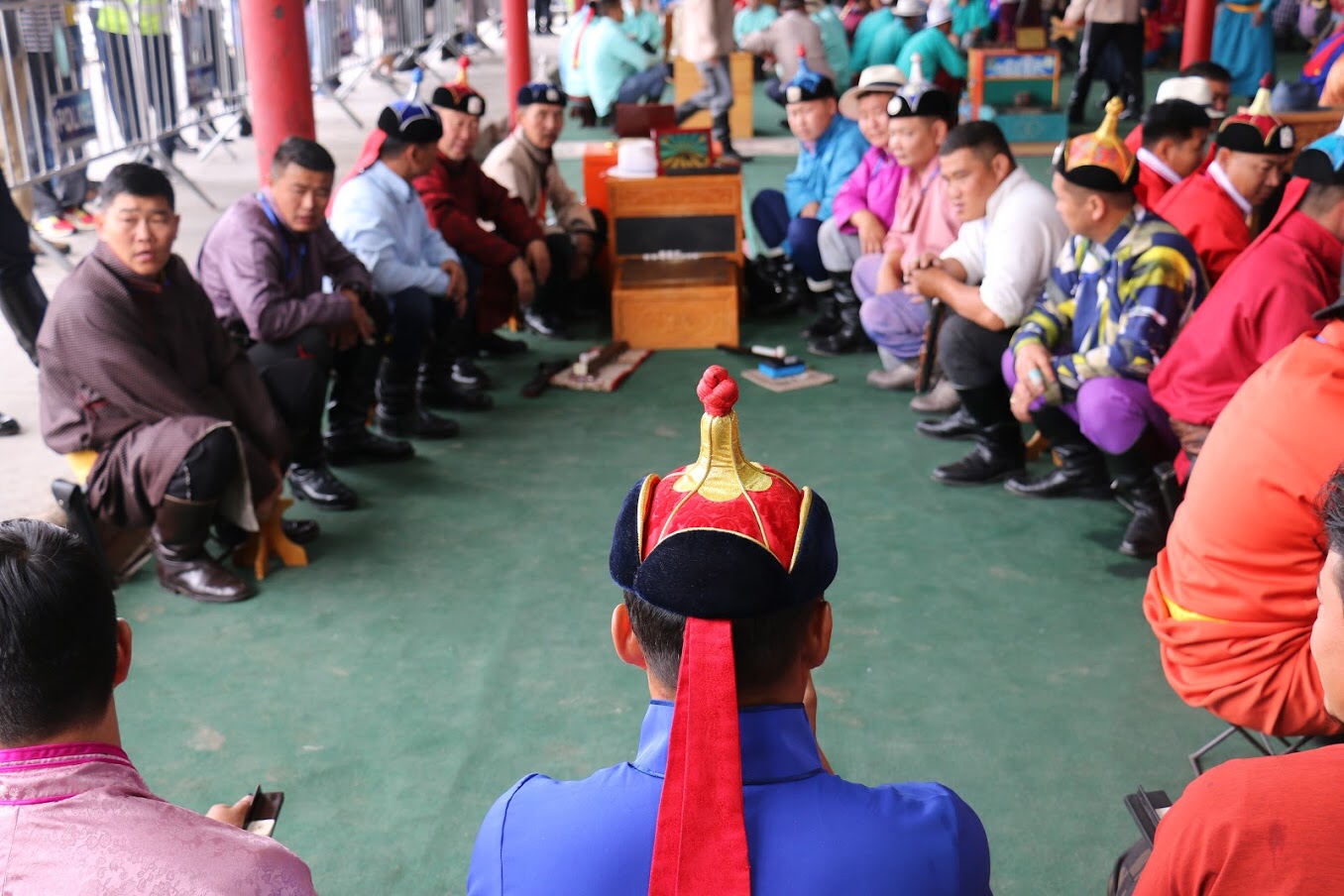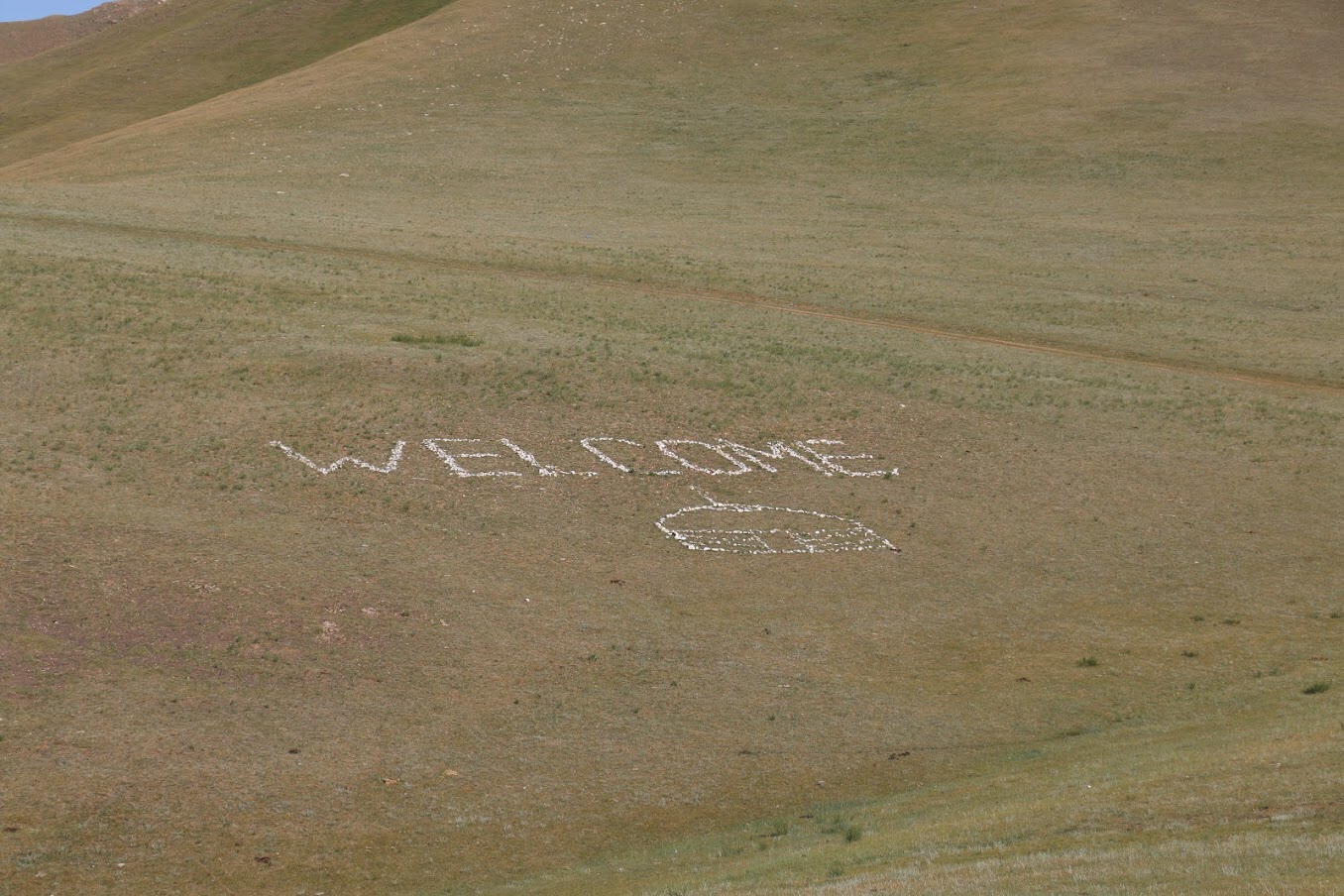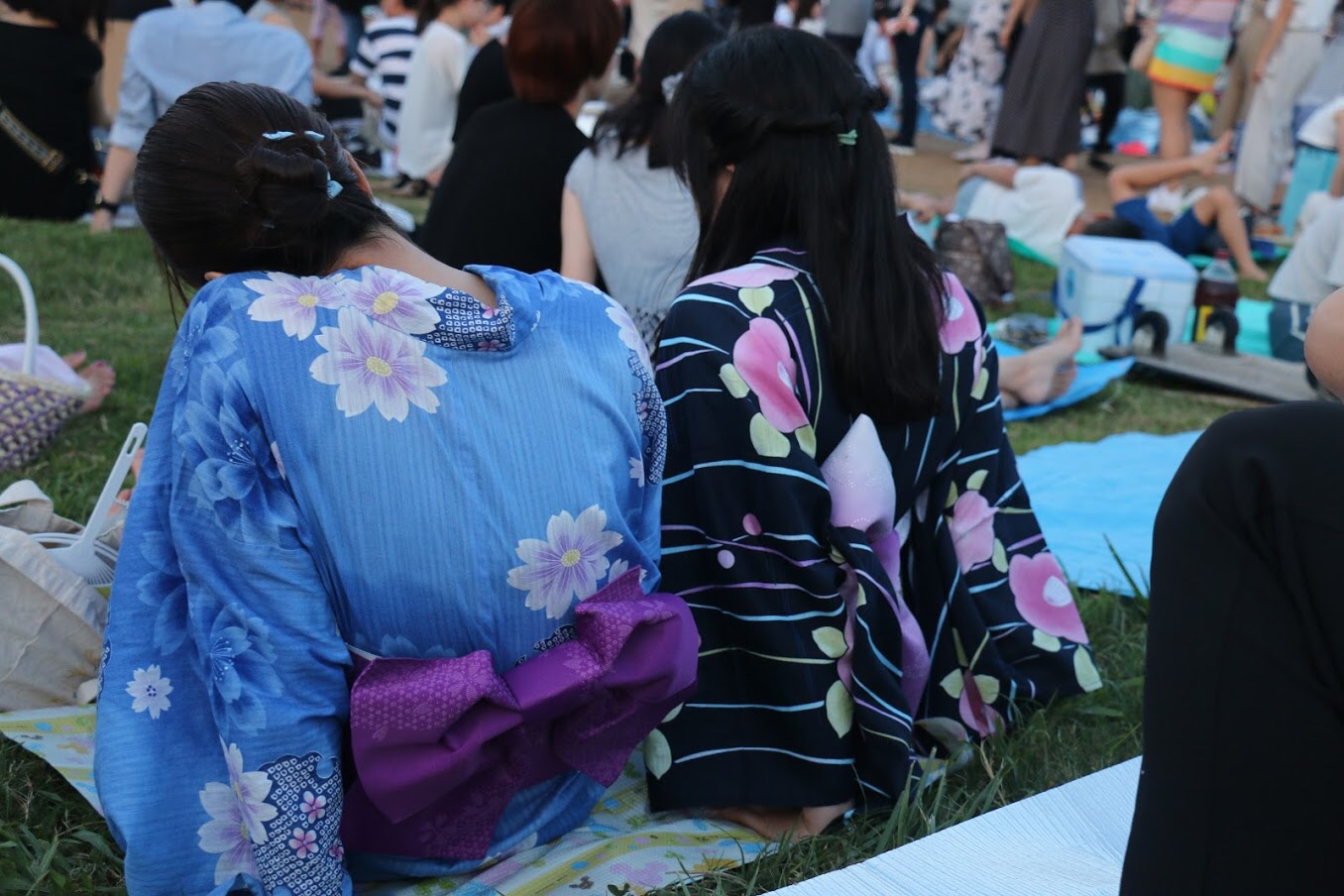While waiting at the airport with my mother due to our seven-hour delay to get to Mongolia  , I did a lot of people watching. I am always fascinated by behavior whether as a social norm or an individual. Often, I find myself imagining what people are thinking or the background behind their actions.
, I did a lot of people watching. I am always fascinated by behavior whether as a social norm or an individual. Often, I find myself imagining what people are thinking or the background behind their actions. 
As we were sitting on lounge chairs to pass the time, people came and went to rest before boarding their flights.
Some people dropped their stuff on multiple chairs to lay claim to them while freely coming and going. Some people rested for a few moments and then jumped up to carry on with their business.  Still others sat down, like we did, pulling out devices
Still others sat down, like we did, pulling out devices  and settling in for a long wait.
and settling in for a long wait.
The seats next to me were generally occupied by a brother and sister  , who were like any other kids these days, playing on their devices. Over the period of a couple of hours, they had spread out their things with a sweatshirt hanging on the back of a chair, bags all around, and they were in for the wait.
, who were like any other kids these days, playing on their devices. Over the period of a couple of hours, they had spread out their things with a sweatshirt hanging on the back of a chair, bags all around, and they were in for the wait.
Finally, the time  to board their plane
to board their plane  came and they quickly gathered up their things to stand in line, leaving behind the sweatshirt.
came and they quickly gathered up their things to stand in line, leaving behind the sweatshirt.
Typical of the lounge seats, they are rarely ever unoccupied for long and soon enough a mother and young daughter swooped in to have their turn in the coveted seats. The mother noticed the sweatshirt hanging off the chair and yelled out to the girl who had just been occupying it. However, the girl was busy putting her things into her backpack  and no one else was paying attention; so the shout out went unheeded.
and no one else was paying attention; so the shout out went unheeded. 
I wondered what the mother would do next while her daughter looked at her with a seemingly similar question. 
The mother simply shrugged her shoulders and said, “Well, I tried.” To which, her daughter accepted and they carried on. 
I almost laughed out loud.  Was that a reasonable claim to “trying”?
Was that a reasonable claim to “trying”? 
Only a couple of minutes later, the mother and daughter got up to stand in the same line as the girl who had left the sweatshirt behind. The sweatshirt remained.
Clearly, the mother’s trying was complete and forgotten.
In the meantime, I found myself debating on my own action. In my disbelief with the mother’s claim to have tried, I ran through my own mind  : What is my version of trying? Should I get involved? What if the sweatshirt was actually important to the girl? What if it was the only sweatshirt she had? What if her dead grandmother had given it to her as the last gift she had received from grandma? (Like I said, I can create all kinds of scenarios and drama in my head!
: What is my version of trying? Should I get involved? What if the sweatshirt was actually important to the girl? What if it was the only sweatshirt she had? What if her dead grandmother had given it to her as the last gift she had received from grandma? (Like I said, I can create all kinds of scenarios and drama in my head! )
)
Seeing the girl up ahead in the line, I processed these questions in the 30 seconds or so that they passed through my mind  and grabbed the sweatshirt. I needed to stretch my legs anyway. I walked straight up the line, asked the girl if the sweatshirt was hers – to which she acknowledged it was -, smiled as she thanked me and went for my walk.
and grabbed the sweatshirt. I needed to stretch my legs anyway. I walked straight up the line, asked the girl if the sweatshirt was hers – to which she acknowledged it was -, smiled as she thanked me and went for my walk. 
It was a small act and took very little extra effort of “trying” than shouting out to deaf ears and giving up.
What affected me and still lingers in my mind is the human capacity of lying to ourselves on what it means to “try” without any deep consideration of the results in the action.
To me, one of the main reasons that people are unhappy is a lack of empathy and compassion for others or our possessions. That mother had no concern for the left behind object, nor what it might mean to the person who left it behind.
In our privileged world, we tend to take everything for granted. We lose a sweatshirt, we’ll buy another one. We forget a birthday, there’ll be another one. We haven’t talked to a friend in weeks, they’ll still be there.
Yet, what if that sweatshirt can’t be replaced financially, sentimentally?  A little bit more effort could prevent an emotional disturbance.
A little bit more effort could prevent an emotional disturbance. 
What if there isn’t another birthday for that person?  A simple message to acknowledge their life could make a difference in the final days.
A simple message to acknowledge their life could make a difference in the final days. 
What if your friend isn’t there next week?  A quick “Hey, thinking of you.” could reconnect you and perhaps be just what was needed for both you and your friend.
A quick “Hey, thinking of you.” could reconnect you and perhaps be just what was needed for both you and your friend. 
Everyday, we make choices. We love to claim that we don’t have time to do this or that choosing to connect with our phones or TV rather than “trying” to participate in the building of humanity. 
Rather than express our annoyances or joys with one another, we bury our heads into our devices, or tell ourselves that either we or they are unimportant. Thus, we don’t really ever “try”. 
The mother and daughter in the story sadden me  because the daughter learned from her mother that both objects and people are only worth a minimal amount of ‘trying’ and any conscience-ness can be shrugged away with “Well, I tried”.
because the daughter learned from her mother that both objects and people are only worth a minimal amount of ‘trying’ and any conscience-ness can be shrugged away with “Well, I tried”.
As a humanist, I believe we can do better and that we have a responsibility to “try harder”. 
~T 





 )
)



 matches, savored our nightly 8-course meals, laughed with my husband about nonsense, absorbed the ‘real purty’ scenery on our drives, and basically let my mind process what it needed.
matches, savored our nightly 8-course meals, laughed with my husband about nonsense, absorbed the ‘real purty’ scenery on our drives, and basically let my mind process what it needed. where this concept is a luxury even if on a person to person basis people would like more of it.
where this concept is a luxury even if on a person to person basis people would like more of it.
 my more “mature” voice took in a deep breath, smiled, waited for the foot to come off of my shoe and continued on.
my more “mature” voice took in a deep breath, smiled, waited for the foot to come off of my shoe and continued on. 
 I should/could choose to wear different shoes that might be less likely to get stepped on. Two,
I should/could choose to wear different shoes that might be less likely to get stepped on. Two,  I could push back or give dirty looks at the offender to make them feel momentarily bad or confuse them as to the problem – either way creating a negative exchange. Three,
I could push back or give dirty looks at the offender to make them feel momentarily bad or confuse them as to the problem – either way creating a negative exchange. Three,  I can accept it for what it is and delay contemplation.
I can accept it for what it is and delay contemplation.




 There is absolutely no need to be in the company of others and not be talking while enjoying some food.
There is absolutely no need to be in the company of others and not be talking while enjoying some food.


 , I did a lot of people watching. I am always fascinated by behavior whether as a social norm or an individual. Often, I find myself imagining what people are thinking or the background behind their actions.
, I did a lot of people watching. I am always fascinated by behavior whether as a social norm or an individual. Often, I find myself imagining what people are thinking or the background behind their actions. 
 Still others sat down, like we did, pulling out devices
Still others sat down, like we did, pulling out devices  and settling in for a long wait.
and settling in for a long wait. , who were like any other kids these days, playing on their devices. Over the period of a couple of hours, they had spread out their things with a sweatshirt hanging on the back of a chair, bags all around, and they were in for the wait.
, who were like any other kids these days, playing on their devices. Over the period of a couple of hours, they had spread out their things with a sweatshirt hanging on the back of a chair, bags all around, and they were in for the wait. to board their plane
to board their plane  came and they quickly gathered up their things to stand in line, leaving behind the sweatshirt.
came and they quickly gathered up their things to stand in line, leaving behind the sweatshirt. and no one else was paying attention; so the shout out went unheeded.
and no one else was paying attention; so the shout out went unheeded. 

 : What is my version of trying? Should I get involved? What if the sweatshirt was actually important to the girl? What if it was the only sweatshirt she had? What if her dead grandmother had given it to her as the last gift she had received from grandma? (Like I said, I can create all kinds of scenarios and drama in my head!
: What is my version of trying? Should I get involved? What if the sweatshirt was actually important to the girl? What if it was the only sweatshirt she had? What if her dead grandmother had given it to her as the last gift she had received from grandma? (Like I said, I can create all kinds of scenarios and drama in my head! and grabbed the sweatshirt. I needed to stretch my legs anyway. I walked straight up the line, asked the girl if the sweatshirt was hers – to which she acknowledged it was -, smiled as she thanked me and went for my walk.
and grabbed the sweatshirt. I needed to stretch my legs anyway. I walked straight up the line, asked the girl if the sweatshirt was hers – to which she acknowledged it was -, smiled as she thanked me and went for my walk. 
 A little bit more effort could prevent an emotional disturbance.
A little bit more effort could prevent an emotional disturbance. 
 A simple message to acknowledge their life could make a difference in the final days.
A simple message to acknowledge their life could make a difference in the final days.  A quick “Hey, thinking of you.” could reconnect you and perhaps be just what was needed for both you and your friend.
A quick “Hey, thinking of you.” could reconnect you and perhaps be just what was needed for both you and your friend. 

 because the daughter learned from her mother that both objects and people are only worth a minimal amount of ‘trying’ and any conscience-ness can be shrugged away with “Well, I tried”.
because the daughter learned from her mother that both objects and people are only worth a minimal amount of ‘trying’ and any conscience-ness can be shrugged away with “Well, I tried”.




























 work just about the same when you step out the door.
work just about the same when you step out the door. 
 to sweaty season
to sweaty season  . Although I don’t feel that it is that hot in terms of temperature, the humidity makes the 91 degree F into something in the hundreds
. Although I don’t feel that it is that hot in terms of temperature, the humidity makes the 91 degree F into something in the hundreds  . It also means that despite a cool-ish breeze, it is impossible to open windows to let the air circulate in the house due to the dampness that will surely enter instead.
. It also means that despite a cool-ish breeze, it is impossible to open windows to let the air circulate in the house due to the dampness that will surely enter instead. 
 with me everywhere to wipe the sweat from walking between air-conditioned locales.
with me everywhere to wipe the sweat from walking between air-conditioned locales. and especially don’t enjoy doing it for just myself, it was a perfect time to give it a go.
and especially don’t enjoy doing it for just myself, it was a perfect time to give it a go.  water in the morning in lieu of tea or coffee.
water in the morning in lieu of tea or coffee. , frozen berries
, frozen berries  , super-green powder and fruit juice or water on the few occasions when I felt weak or just wanted a variation of liquid.
, super-green powder and fruit juice or water on the few occasions when I felt weak or just wanted a variation of liquid. etc., which are considered negative reactions. We tend not to pay attention to how our bodies react to the food that we eat because we eat everything altogether and do not carefully consider which specific thing we ate could have caused the reaction.
etc., which are considered negative reactions. We tend not to pay attention to how our bodies react to the food that we eat because we eat everything altogether and do not carefully consider which specific thing we ate could have caused the reaction.  from either lemons or dandelion tea. I’m leaning towards the dandelion tea as the culprit since it is the newest addition to my intake list and as I’m allergic to grass, it’s probably related. Unfortunately, the symptoms can take days for me to realize what is happening since it does not come on instantly like other reactions that I can have. So, I am eliminating it now while keeping everything else the same for a couple of days (i.e. not adding in anything different or new until I see if the reaction in my throat goes away). If it doesn’t after a couple of days, then I’ll eliminate the lemon water as well and see if that does it.
from either lemons or dandelion tea. I’m leaning towards the dandelion tea as the culprit since it is the newest addition to my intake list and as I’m allergic to grass, it’s probably related. Unfortunately, the symptoms can take days for me to realize what is happening since it does not come on instantly like other reactions that I can have. So, I am eliminating it now while keeping everything else the same for a couple of days (i.e. not adding in anything different or new until I see if the reaction in my throat goes away). If it doesn’t after a couple of days, then I’ll eliminate the lemon water as well and see if that does it. and steamed broccoli
and steamed broccoli  . Though, I think I will try the hummus I made with carrots
. Though, I think I will try the hummus I made with carrots  as well since these ingredients are not meant to be reactive according to The Plan (though I still could have reaction to these as well).
as well since these ingredients are not meant to be reactive according to The Plan (though I still could have reaction to these as well).  exactly, I have already lost 3 kg (6.6 lbs) in just about a week. Some of that would obviously be water weight, though I feel as if I was drinking enough water to counter that! So, that’s a kind of perk. More happily for me personally is that the underlying 4-pack I’ve been working on at the gym
exactly, I have already lost 3 kg (6.6 lbs) in just about a week. Some of that would obviously be water weight, though I feel as if I was drinking enough water to counter that! So, that’s a kind of perk. More happily for me personally is that the underlying 4-pack I’ve been working on at the gym  is finally showing itself since the flabby belly that was hiding it is starting to disappear. It helps me to see what areas to work on more in my workouts.
is finally showing itself since the flabby belly that was hiding it is starting to disappear. It helps me to see what areas to work on more in my workouts. 

 and to keep on experimenting with my food. Hopefully
and to keep on experimenting with my food. Hopefully  , by the time he comes back I’ll have a base to be able to keep me on track (and maybe get him started?!).
, by the time he comes back I’ll have a base to be able to keep me on track (and maybe get him started?!).